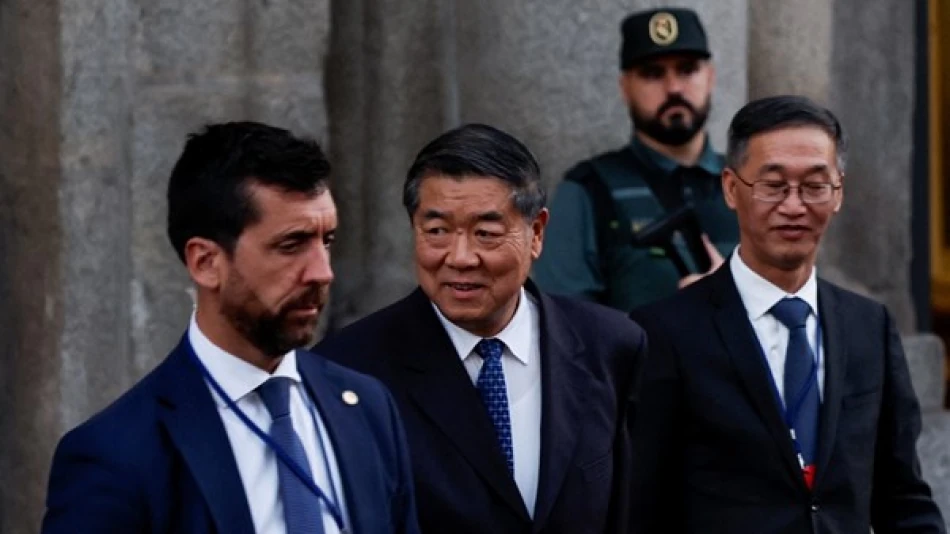
US and Chinese Delegations Discuss Bilateral Trade Negotiations
US-China Trade Talks Resume in Madrid as TikTok and Tariff Tensions Dominate Agenda
High-level US and Chinese delegations concluded their first day of economic negotiations in Madrid on Sunday, with discussions centering on critical flashpoints including TikTok's future, tariff policies, and broader economic relations. The talks represent a significant diplomatic engagement as both nations navigate mounting trade pressures and technology disputes that could reshape global commerce.
Key Players Drive Strategic Dialogue
US Treasury Secretary Scott Bessent and Chinese Vice Premier He Lifeng led their respective delegations in what marks one of the most substantive bilateral economic discussions in recent months. While both senior officials departed after Sunday's sessions, technical teams from both sides remained in Madrid to continue detailed negotiations on Monday, signaling the complexity and importance of the issues at hand.
TikTok Takes Center Stage
The inclusion of TikTok in the formal agenda underscores how deeply technology and national security concerns have become intertwined with trade policy. The Chinese-owned social media platform faces potential restrictions or forced divestiture in the US, creating a significant point of contention that extends beyond traditional trade disputes into the realm of digital sovereignty and data security.
Technology as Economic Leverage
This focus on TikTok reflects a broader trend where technology companies have become pawns in geopolitical negotiations. Similar to how Huawei became a central issue in previous US-China tensions, TikTok's fate now appears tied to broader economic agreements, potentially setting precedents for how democracies handle Chinese technology platforms.
Tariff Strategy Under New Administration
The tariff discussions come at a crucial juncture as the US evaluates its trade policy framework. With global supply chains still recovering from pandemic disruptions and inflation concerns persisting, both nations face pressure to find solutions that protect domestic interests while maintaining economic stability.
Market Implications and Investor Outlook
For investors and multinational corporations, these Madrid talks represent a potential inflection point. Companies with significant exposure to US-China trade—from agriculture to manufacturing to technology—are closely watching for signals about tariff modifications, which could immediately impact profit margins and supply chain strategies. Any breakthrough could trigger significant market movements, particularly in sectors most affected by current trade restrictions.
Historical Context and Strategic Importance
These negotiations occur against the backdrop of years of escalating economic competition between the world's two largest economies. Unlike previous trade discussions that focused primarily on agricultural purchases and manufacturing tariffs, the current talks reflect evolved priorities including technology transfer, data security, and digital platform governance.
The choice of Madrid as a neutral venue also suggests both sides recognize the need for substantive dialogue away from domestic political pressures. This mirrors successful diplomatic precedents where third-country locations have facilitated more productive negotiations between major powers.
What Success Looks Like
While immediate breakthroughs remain unlikely given the complexity of issues involved, progress on any single front could create momentum for broader agreements. Even modest adjustments to tariff schedules or preliminary frameworks for technology cooperation could signal a shift toward more constructive economic relations, potentially benefiting global markets and reducing uncertainty for businesses operating across both economies.
Most Viewed News

 Layla Al Mansoori
Layla Al Mansoori






